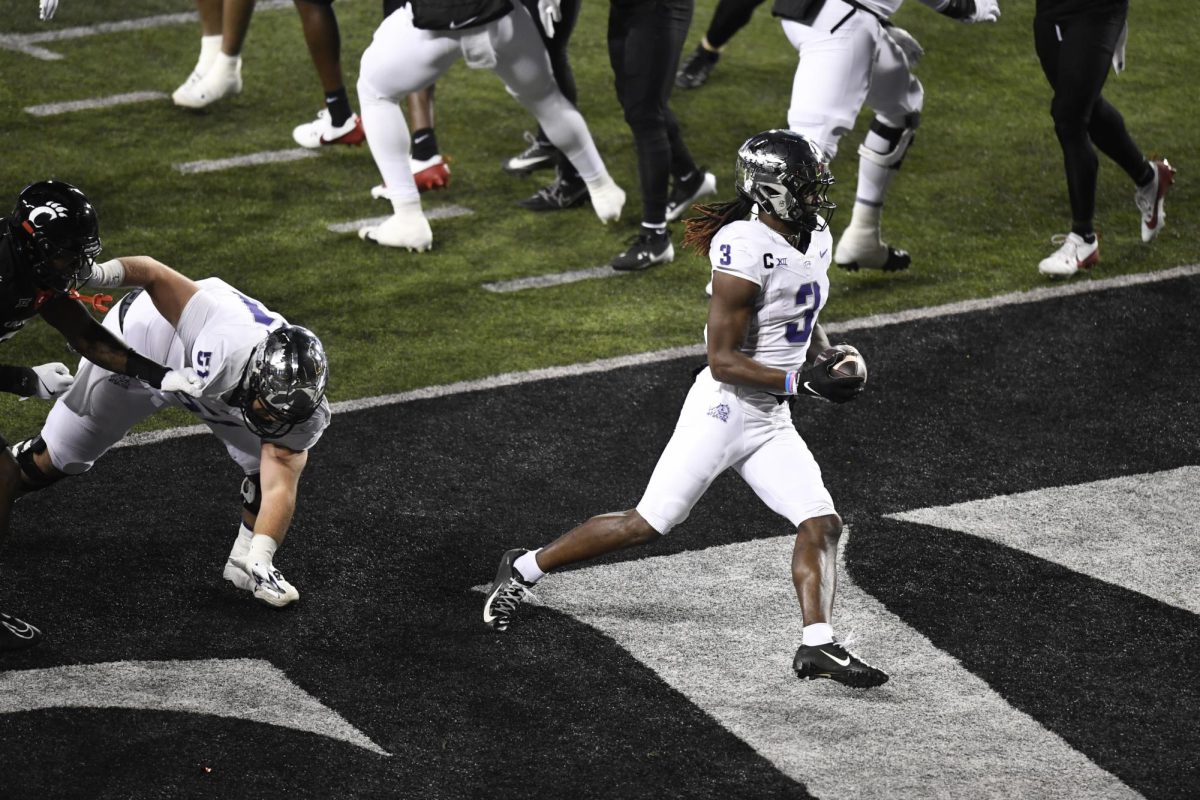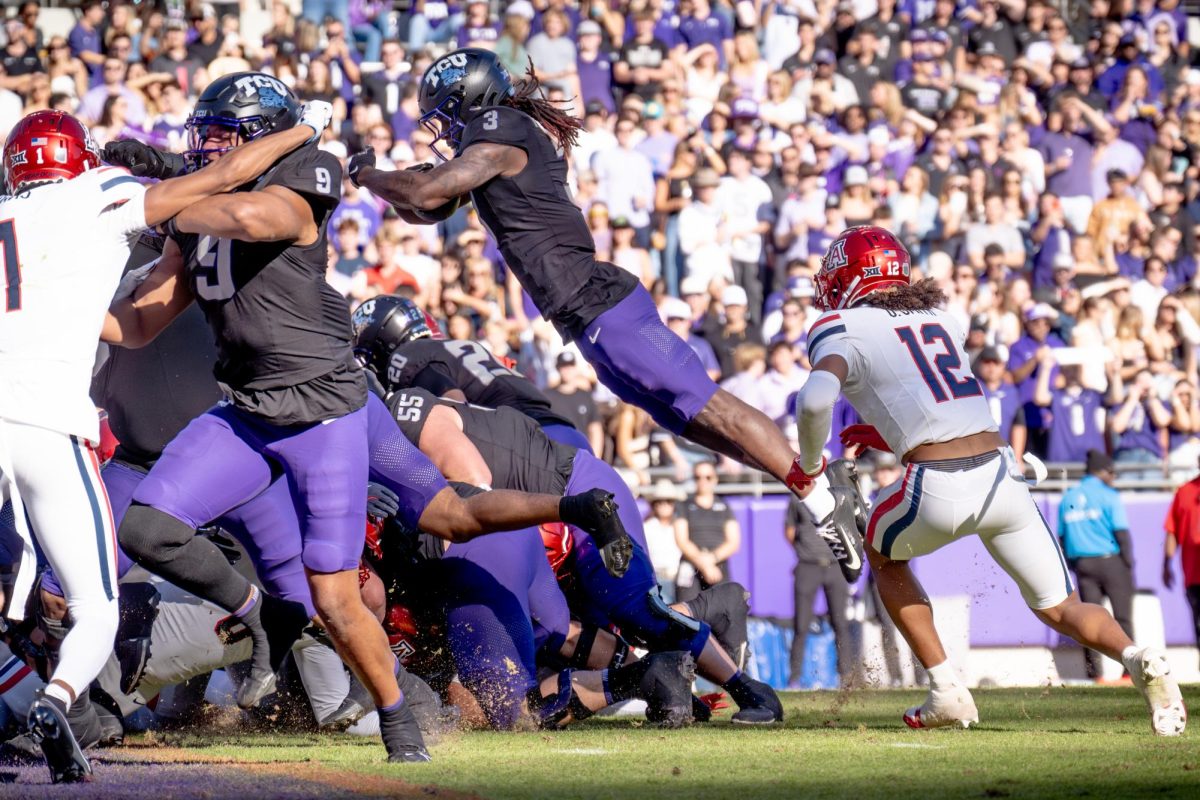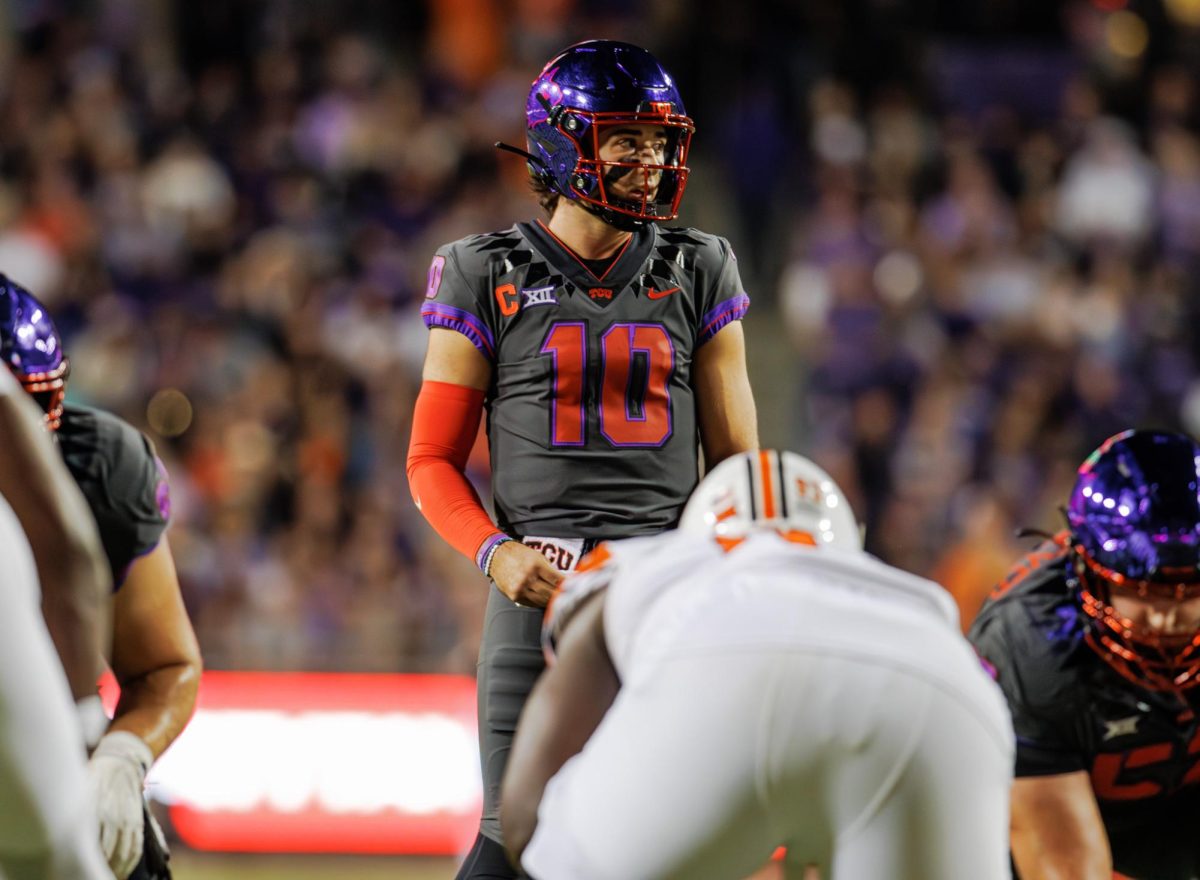LaDainian Tomlinson, for all those 200-yard games and that 406-yard performance against UTEP and all the other school records he shattered and still holds, might be remembered most at TCU for that December night in 2000 when he sat on the front row of the Downtown Athletic Club in New York. He wore a pinstripe suit with a purple tie that glistened off the flash of the cameras; he shook hands with Johnny Rodgers; he was on ESPN.
Just three years earlier, as a freshman, Tomlinson and his teammates would carry their pads and helmets through the August heat down to two-a-days. The one-quarter mile trek from the team’s locker room at Amon G. Carter Stadium to its practice fields on the south edge of campus was as routine as the yards Tomlinson would soon start racking up.
Now, on that night, with Bill Clinton’s second term winding down, Tomlinson had given TCU its first Heisman Trophy candidate since the FDR administration.
He finished fourth in the voting.
After reading the names ahead of him — the winner from Florida State, the runner-up from Oklahoma – Tomlinson offered a sobering response.
“It lets me know that it’s almost impossible for a guy from TCU to win the Heisman,” he told Sports Illustrated.
Despite Tomlinson’s disappointment at the time, many people point to those years around the turn of the century with Dennis Franchione as the head coach as the beginning of TCU’s turnaround as a program from the low point following the split of the Southwest Conference.
"Everybody has to have a stroke of good luck," said Chuck Neinas, the former interim Big 12 commissioner who headed the conference last fall when it extended an invite to TCU. "Coach Fran was there, and he stumbled upon a running back out of Waco (Tomlinson) and they beat Southern California in the (1999 Sun Bowl). They've taken off from there, haven't they?"
But if Franchione started the program’s turnaround, he wasn’t there to finish it.
A week before that Heisman ceremony in 2000, Franchione accepted the job at Alabama, and TCU gave the vacant head coaching position to a 40-year-old career assistant. The Frogs lost to Southern Miss in the bowl game that year, and they dropped their 2001 opener to then-No. 4 Nebraska 21-7. The next week, Sept. 1, TCU went on the road again and beat North Texas 19-5.
Gary Patterson had his first career win.
Since then, the Frogs have bounced from the WAC to Conference-USA to the Mountain West to the Big East (sort of) and now to the Big 12. They’ve won big games – against Wisconsin in the 2011 Rose Bowl – and they’ve lost games they shouldn’t have – against SMU in 2005. They’ve won conference titles and bowl games, the last of which against Louisiana Tech in December gave Patterson his 109th win at TCU.
On Saturday, Patterson and the Frogs will open their 2012 season against Grambling State in the newly-renovated Amon G. Carter Stadium. A win would make Patterson the school’s all-time winningest coach, surpassing Dutch Meyer, who won two national titles in the 1930s.
The stars have seemingly crossed: TCU, a university under constant construction the past five years, now with a new piece of architecture, which, to the chagrin of campus academia, will bring the school more into the national eye than a new library ever could; Fort Worth, a city that for years has longed to avoid the shadow of Dallas, now with a Big 12 program, something its sister city 30 miles to the east has never had; and Patterson, close enough to reach out and touch the school’s all-time wins record, which of course he wouldn’t dare try to do until the final seconds tick off his gleaming new scoreboard Saturday night.
And, really, that’s the thing about Patterson. As much of coachspeak as it might seem at times, he truly takes little for granted.
Last November, after the Boise State game, Patterson stood outside the visitors’ locker room on the north side of Bronco Stadium. The spotlight from a television camera shone off his glasses. Night crept in, temperatures kept dropping. Chris Del Conte milled around in an overcoat and a scarf. Above Patterson toward the top row of endzone bleachers, a Boise fan called out the coach’s name and made some kind of gesture. Patterson shot up a look. Even after handing the Broncos their first home loss in 10 years, Patterson was still on the defensive, still on edge. And, if only for a half-second, Patterson still seemed to have the look of that Division II assistant coach from tiny Rozel, Kan., making $1500 a year, living off peanut butter crackers, wondering where he’d land his next job.
This summer, Patterson sat on the stage at Big 12 Media Days and remembered the days of Tomlinson and his teammates making those daily hauls to the practice. He remembered the loss to SMU in 2005, one week after beating Oklahoma, the ultimate high-to-low feeling. Patterson couldn’t forget the sting of the setbacks, nor could he forget how far his program had come.
And now, with a chance Saturday night to hold sole possession of the school win record as his team enters a new conference, a new stadium and a new echelon of the college game, Patterson’s plan will be the same as it’s been since that September afternoon in Denton 11 years ago.
“We’ve got to keep climbing the mountain,” he said. “When you’re sitting on the side of the mountain, you don’t rest.”




